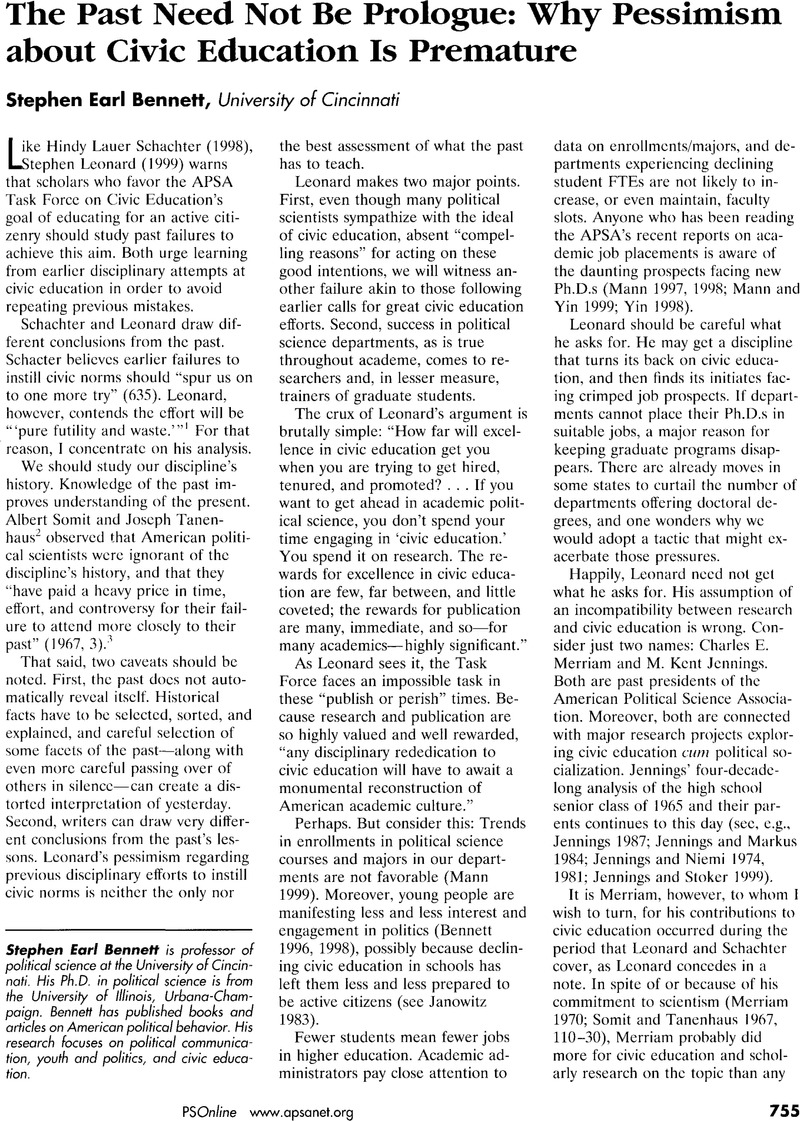Crossref Citations
This article has been cited by the following publications. This list is generated based on data provided by Crossref.
ISHIYAMA, JOHN
BREUNING, MARIJKE
and
LOPEZ, LINDA
2006.
A Century of Continuity and (Little) Change in the Undergraduate Political Science Curriculum.
American Political Science Review,
p.
1.
Bernstein, Jeffrey L.
2007.
Simulations and the dynamics of racial and gender gaps in civic competence.
New Directions for Teaching and Learning,
Vol. 2007,
Issue. 111,
p.
89.



